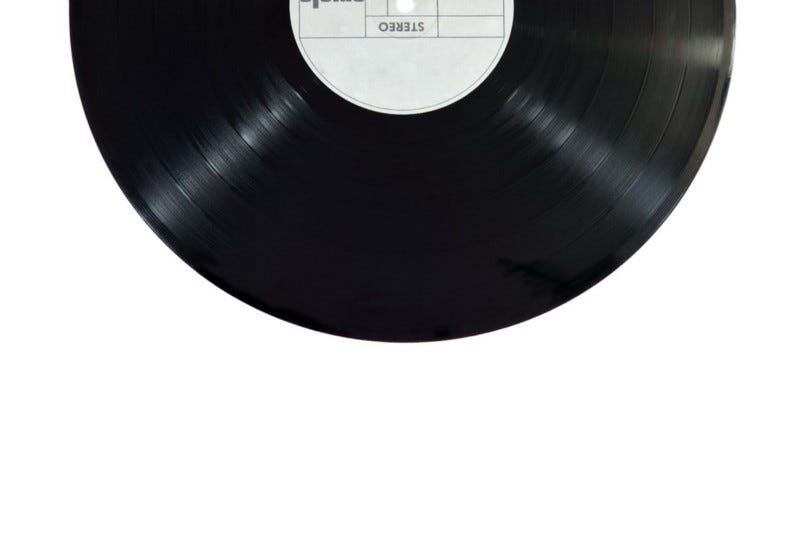InternetFM’s Steven Leventhal Talks Internet Radio, Music Streaming, and Connecting with the…
Featuring a platform of 50 music station choices, along with original features, and music resources, InternetFM has built a successful…
Featuring a platform of 50 music station choices, along with original features, and music resources, InternetFM has built a successful, interactive relationship between listeners and broadcasters.
Designed as radio for the passionate music fan, you can now download the InternetFM app to experience a whole new way to listen to streaming radio on the Internet.
The recently updated mobile app includes not only their flagship station, ‘Acid Flashback Radio’, but a collection of forty-nine music stations of the highest quality for your listening enjoyment. These include ‘Handcrafted Radio’, ‘PlanetRadio.us’, and ‘Radio Free Phoenix’, as well as some independent, hand-curated stations on the Internet like ‘Radio Paradise’, and ‘Radio Brent’.
We were fortunate enough recently to connect with InternetFM CEO Steven Leventhal for a great conversation about the music business, streaming radio, traditional radio, and much more.
Platform & Stream: — What was the jumping-off point to start InternetFM?
Steven Leventhal: There was definitely an “aha” moment. The journey started in 2012 with Acid Flashback radio, and along the way, we had developed a network of like-minded broadcasters who shared our passion for music, and creating a professional sounding broadcast.
However, in early 2018, Eric and I were at Lefthand Brewing in Logmont, Colorado for a “vinyl night” event. In the process of trying to show one of the bartenders the web based version of the station on an iPad, we realized that we needed a better way to present our station. In retrospect, we made a very smart decision to build an app that had multiple stations. We decided to give InternetFM the look and feel of a car radio. We launched with 23 stations which could be assigned to any of eighteen preset buttons. We offered multiple music genres.
Platform & Stream: — What has been the experience like building and developing the business over the years?
Any specific roadblocks along the way? Surprises (good or bad)?
Steven Leventhal: This is my third startup — all in the broadcast business, so I learned a lot of things along the way, and vowed to not repeating old mistakes.
This time, nobody quit their day jobs, so our over head is extremely low. We also put together a group of advisors in areas we weren’t experienced, such as marketing, legal, and project management. We hit a roadblock early on with our “hybrid” version of the app. We’d fix a bug in iOS, and something in Android stopped working.
Perhaps a year later than we should have, we split the app into two separate versions. But if we hadn’t waited, we might not have found our current iOS developer, who is clever in so many ways. Some of his ideas, such as featured artists and now playing notifications, might never have occurred to us. He also built an alpha tvOS platform one weekend, because he was bored.
Platform & Stream: — In a sea of audio options for consumers, what are you thinking about/developing currently to continue to attract listeners to the InternetFM brand/platform?
Steven Leventhal: A few more quality stations.
Possibly an AI to match a listener with the right station or stations, depending their music preferences. We are slowly and deliberately adding stations that share our values (diverse catalog, emphasis on lesser played artists and songs, large libraries, and an on-air personality).
Most of our competitors have hundreds, if not thousands of stations, making it a challenge to sort through the junk to find the good stuff.
We skip that step and provide a vetted set of channels if you will. And a very limited amount at that. Less is more.
Platform & Stream: — What are your thoughts on the overall business of ‘music streaming?’
Steven Leventhal: It’s still a broken business, where music creators don’t get a large enough share of revenue. Even though music services can provide exposure to new and lesser known artists, it’s not sufficient income. For consumers, it’s a bonanza. Your collection is not limited by the how much room you have for records or CD’s. It also presents so many opportunities to explore new music without have to buy a whole album. When I was growing up, you simply couldn’t buy everything that you wanted. A lot of album sharing went on among friends.
Thank goodness I had a cassette deck and a bunch of friends who also liked music. It’s so much easier now.
Platform & Stream: — What’s your long-term view of the ‘radio’ business — in all its many forms these days (online, car, etc…)? How do you see things changing over the next few years?
Steven Leventhal: Traditional radio, especially in the smaller markets is rapidly becoming an unsustainable business model. Every person who gets a new car with a USB or Bluetooth connection now has choices. Sirius XM, podcasts, audiobooks, or Internet radio stations like us. And all those listeners are getting siphoned off from terrestrial radio. The pandemic has only exacerbated that decline.
Radio ratings, which stations use to determine their advertising rates, are based on an extrapolation of a small (and supposedly) representative sampling.
I often wonder how well those estimates would hold up to a thorough scrutiny.
The Internet has leveled the playing in many ways. I don’t need an FCC license, a broadcast tower, and my audience is worldwide.
That also allows us to have niche formats, because the potential audience is so vast. You couldn’t pay me to take a terrestrial broadcast license. Similarly, I get an exact count of the number of listeners through our streaming providers.
We have listeners in over 130 different countries.
Platform & Stream: — How are you different than streaming services?
Steven Leventhal: We get that one a lot. Spotify or Apple offer music on demand. The listener has to figure out what they want to listen to. I have Spotify. I have many playlists on Spotify. I just got back from a West coast trip.
On the airplane I listened to the same three playlists — yet again. Even with their algorithms, you have to decide what you want to hear.
Most people have a comfort zone that they don’t stray very far from. On the other hand, streaming radio is like live television. You watch whatever is on. If you don’t like one channel, switch to another and another. The difference is there is a constant variety of music and formats. The large music libraries mean few or no repeats.
Our products are not mutually exclusive. Ideally, you might hear a band you’ve never heard of, or a deep track from an album you haven’t listened to in years. Then go open up Spotify and do a deep dive on that artist. The two services can co-exist very nicely, and are really complimentary.
Platform & Stream: — What’s next for InternetFM?
Steven Leventhal: Interactive — giving the listeners a chance to connect with stations. Request a song, provide feedback, or talk to the disc jockey, just like we did in the “old days.”
Providing the stations an opportunity to forge a better relationship with the listeners, is something very few broadcasters, and definitely not the streaming services are doing. Lastly, allowing up and coming bands and artists to engage with our audiences, and gain new fans.
Since the streaming revenue is so low for the small bands, they need to make it up with ticket and merchandise sales.
There is no better way to grow your fan base that to interact with listeners. If they like band X, then here, check out band Y.
— — — — — — — — — —
Platform & Stream Info:
🎵 Subscribe today to Platform & Stream for your daily rundown of the most important & interesting music streaming news
✉️ Send story ideas & feedback to: jeff@platformandstream.com
⭐️ Support Platform & Stream by sponsoring an issue sent to our 2450+ subscribers every weekday.






